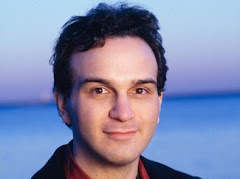The MPYO under the MPO’s resident conductor Harish Shankar gave a concert with a very attractive Romantic programme in mid-June. Shankar opened the programme with a concert hall rarity in the shape of Grieg’s concert overture In Autumn Op 11. The MPYO coped bravely with Grieg’s unfamiliar work with some erratic bouts of ensemble and dubious woodwind and brass intonation.
A better-known Romantic masterpiece followed, with Dvořák’s evergreen Cello Concerto with soloist Csaba Kőrös from the MPO. Characterful clarinets articulated the first movement’s principal theme, setting up the justly celebrated horn solo, played with eloquence and quiet assurance.
Kőrös championed the work with a deeply burnished tone well suited to its rich Romanticism, with Shankar’s accompaniment sensitive and nuanced. The orchestra occasionally masked the soloist, although Dvořák was very careful in his balancing and orchestration of this most superb of all cello concertos. Tempi in the first movement were a tad too fast and in places, Kőrös sometimes struggled with the immense technical difficulties that Dvořák posed.
Opening with a choir of winds, the slow movement gave way to long, arching cello lines drawing out a sublime melody. This was the best-played movement in the whole concerto as Kőrös took his time to phrase Dvořák’s arching melodies and gave us a richly played and nuanced interpretation.
The jaunty finale had a distinctively Slavic feel. In one of the movement’s more inward-looking moments, the concertmaster for the first half Issywan Musib engaged in an intimate musical conversation with soloist Kőrös. Speeds were again a touch too fast for clear articulation, but the audience thoroughly enjoyed the interpretation that Kőrös and Shankar gave.
The best performance of the concert came in the second half, where orchestra and conductor were most comfortable with each other. Sibelius' gorgeous and sunny Second Symphony was their offering in the second half, with the MPYO led by Low Zi Yang, who had impressed at the Nemanja Radulovic master class the day before with Paganini’s 24th Caprice and the first movement of Mendelssohn’s Violin Concerto Op 64.
The strings throbbed for the opening of the Allegretto and expanded into thick velvety textures. The brass was on stronger form, more precise than previously and with a good perkiness in the horns, while lugubrious bassoons and clear oboes stood out in the woodwind.
Keen pizzicato, again benefiting from the DFP hall’s magnificent acoustic, in the Andante flickered evocatively against the bassoon theme. Shankar’s tempi were apt, allowing for a poetic unfolding of the slow movement.
Less-than-fleet string playing opened the third movement before a fine limpid oboe solo introduced the Trio. The finale burst out of the preceding movement and here the string and brass playing reached new heights, ending the symphony in a blaze of glory.
Shankar gave us a fitting encore in the shape of Grieg’s jaunty Norwegian Dance Op 35 No 4 to end an enjoyable afternoon out with the MPYO.
Subscribe to:
Post Comments (Atom)
















































No comments:
Post a Comment